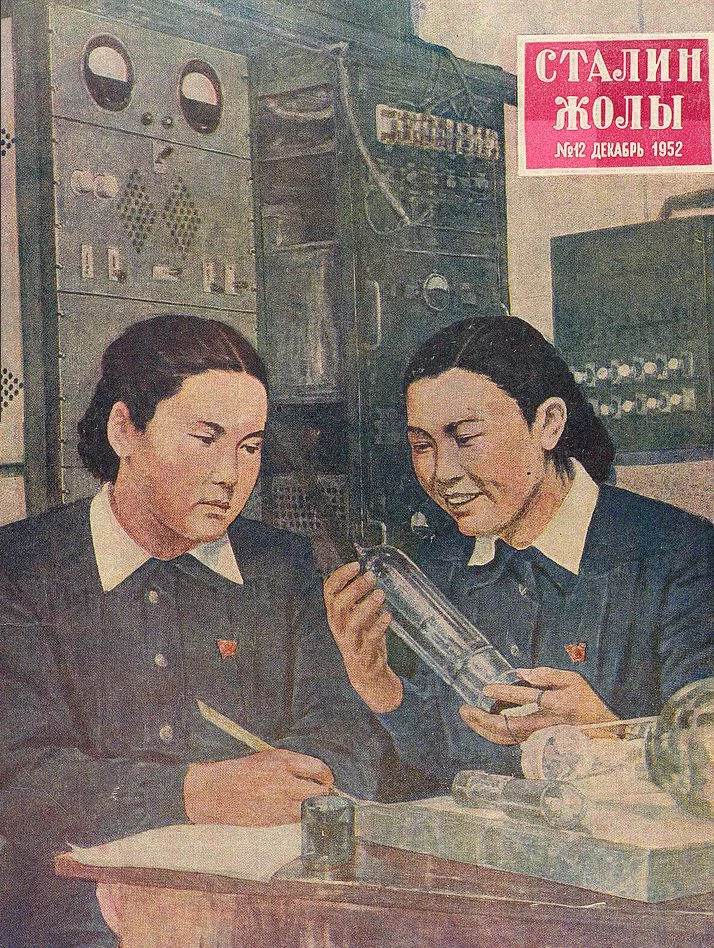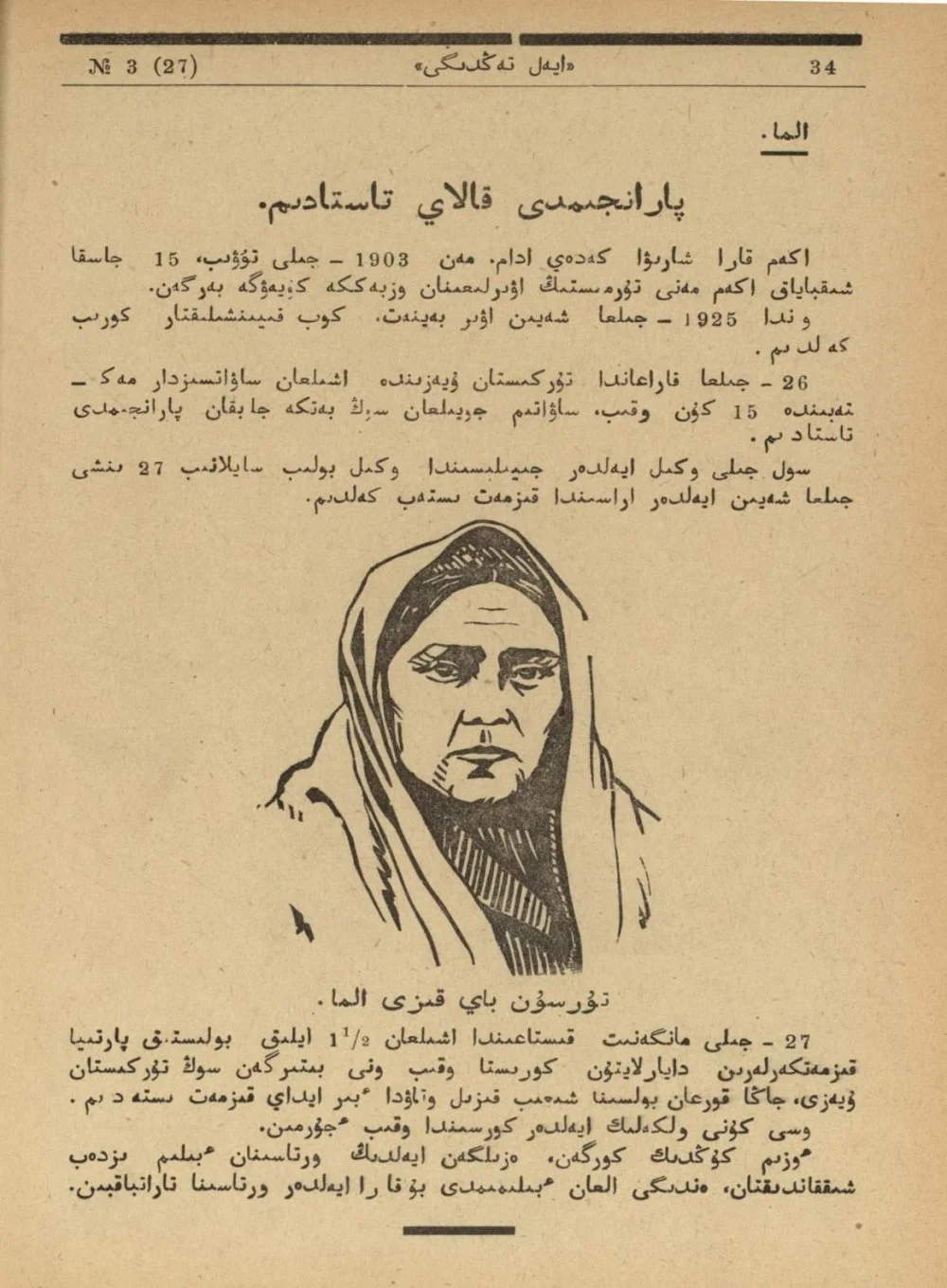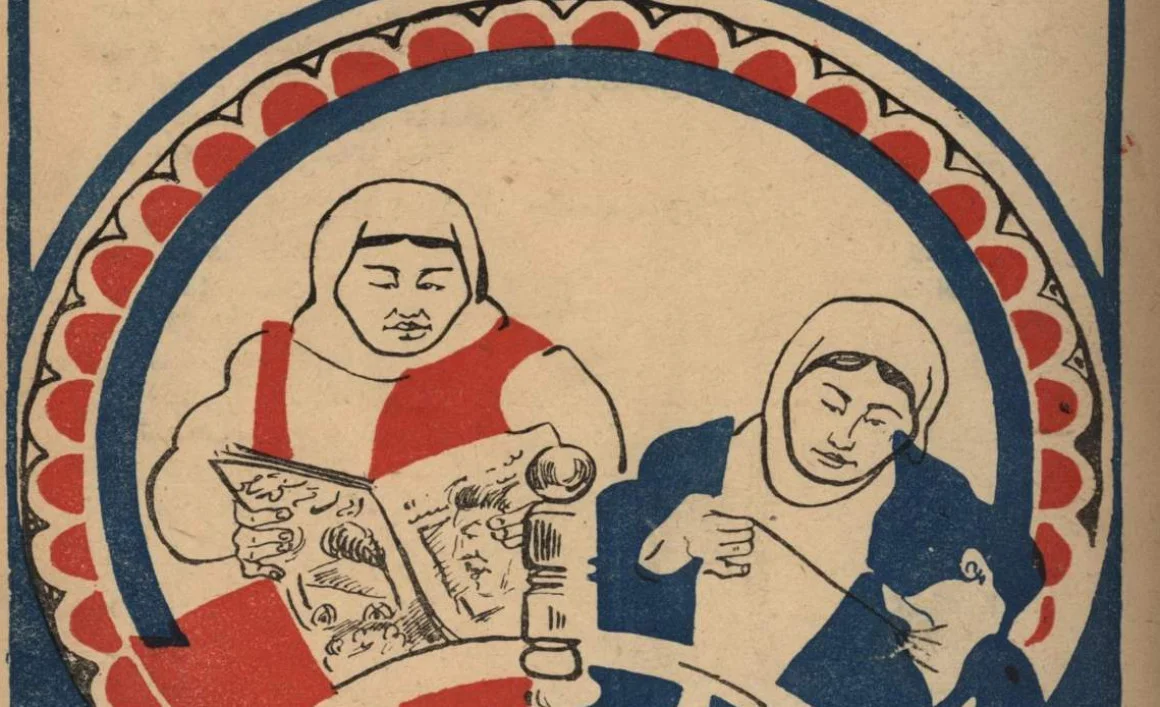As the nineteenth century gave way to the twentieth, a great wave of awakening surged through Kazakh intellectuals, sparking a passionate quest for knowledge. This outpouring of intellectual zeal led to an explosion of new magazines and newspapers being published in Kazakh, heralding the dawn of a new era in sharing culture.
However, what these intellectuals wrote went beyond only spreading knowledge. Soon, a variety of publications emerged, covering topics like business, society, politics, art, and humor. Qalam invites you to explore snippets from Kazakh publishing culture and history compiled by historian Abai Myrzagali, offering a glimpse into the important issues of the past.
The well-known magazine "Women of Kazakhstan,"i




cover of Stalin’s path magazin
"Women's Equality" often published letters from readers, although in reality, they could have been ideologically well-fabricated female role models for that time. They not only spoke about their misfortunes and the burden of conservative societal norms but also proposed somewhat practical solutions for their problems and career advancement. Here is one such letter:
How I discarded my paranja
My father was a poor laborer. I was born in 1903, but even before I turned 15, due to life's hardships, my father married me off to an Uzbek. Therefore, until 1925, I lived in severe torment and experienced all the hardships of life. However, as soon as I completed a fifteen-day school for illiterates, which had just opened in the Turkestan uezd in 1926, I immediately discarded my paranja. In the same year, I was elected as a deputy to the women's congress, and until 1927, I worked among women.

Tursynbaiqyzy Alma
Women's Equality, No. 3(27), 1928

Page with Alma’s letter




